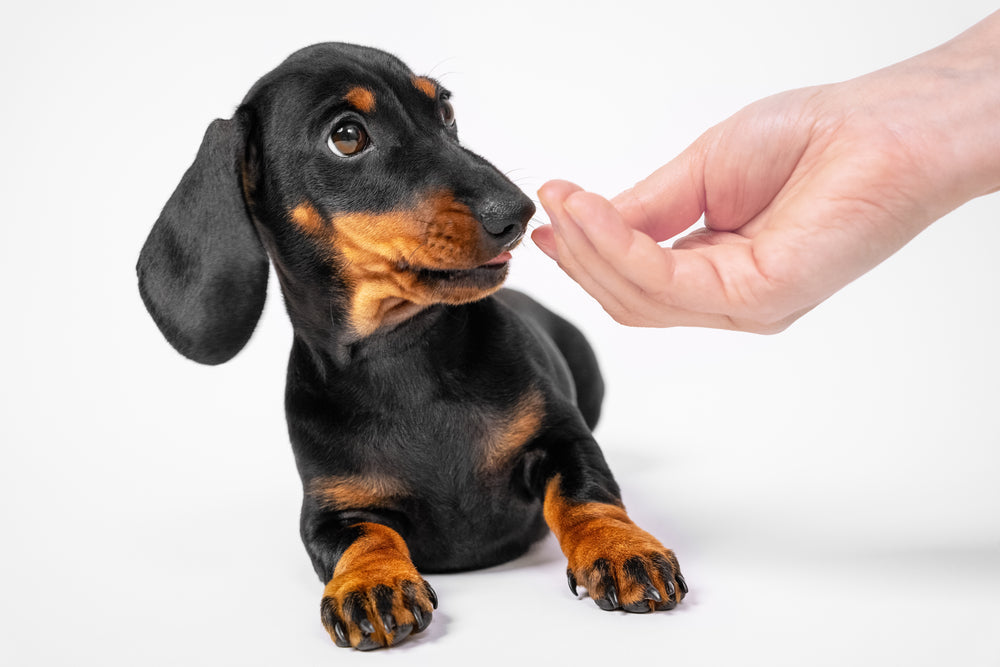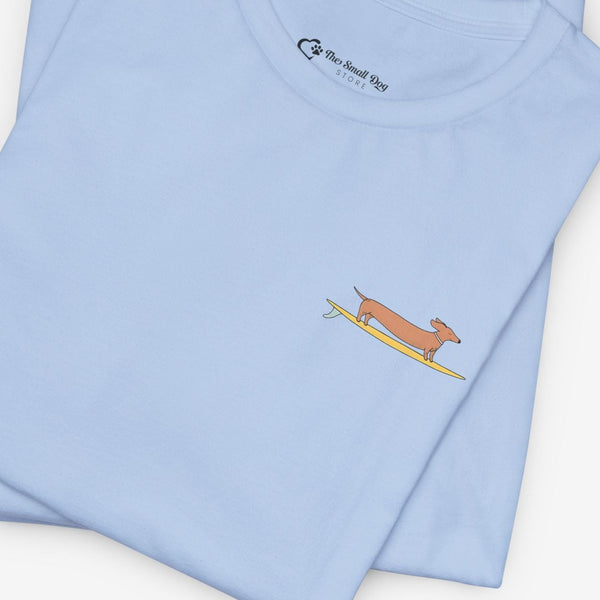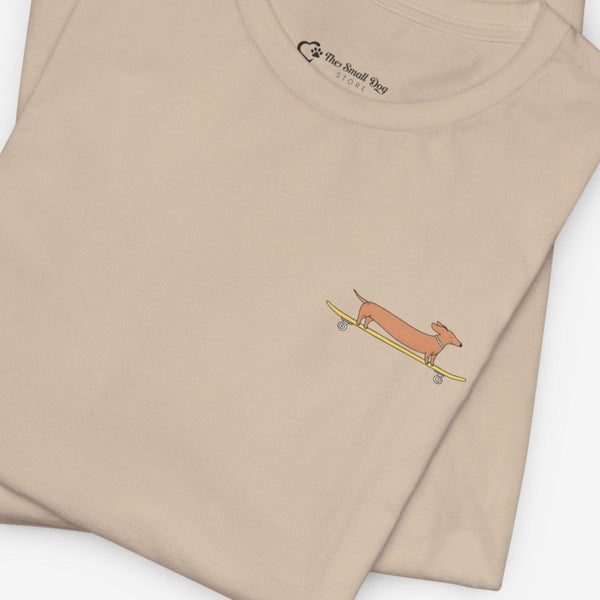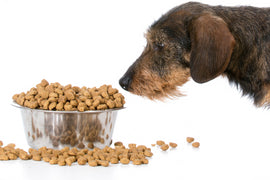Dachshund Care Guide: Keeping Your Wiener Dog Happy and Healthy
Posted by ROBERTO BURALLI

As a dachshund owner, you know that these lovable, sausage-shaped dogs have unique needs when it comes to diet, exercise, and weight management. This guide will help you ensure your dachshund stays healthy, happy, and at an optimal weight.
Dachshund Diet and Exercise Needs
Nutritional Requirements
Dachshunds have specific dietary needs to maintain their health:
- Protein and Calories: Adult dachshunds need a moderately high percentage of protein in their diet. Miniature dachshunds typically require about 300-400 calories per day.
- Essential Nutrients: Ensure their food includes calcium, phosphorus, and Vitamin D for bone health. Omega-3 fatty acids can benefit coat health and reduce inflammation.
- Food Preferences: Dachshunds can be picky eaters. Experiment with high-quality dry kibble, wet food, or a mix to find what your dog prefers.
- Grain Considerations: While some dachshunds do well with grains, others may have sensitivities. Be cautious with grain-free diets due to potential links to heart disease.
Feeding Guidelines
- Puppies: Feed a protein-rich diet balanced to prevent excessive weight gain. Adjust as they reach maturity (8-12 months).
- Adults: Divide daily food intake into two meals to maintain metabolic health.
- Special Cases: Consult a veterinarian for personalized advice, especially if your dachshund has health issues.
Exercise Requirements
- Daily Activity: Adult dachshunds need 30 to 60 minutes of exercise per day, including walks, playtime, and mental stimulation.
- Puppies: Follow the 5-minute rule: 5 minutes of structured exercise per month of age, twice daily.
- Benefits: Regular exercise helps manage weight and can reduce the risk of Intervertebral Disc Disease (IVDD).
- Senior Dogs: Adjust routines for aging joints, considering low-impact activities like swimming.
- Mental Stimulation: Use interactive toys and games to keep your dachshund mentally engaged.
Creative Exercise Ideas
Increasing your dachshund's exercise can be both fun and beneficial for their health. Here are some creative ways to enhance their activity levels:
- Scent Games: Hide treats or toys around your home or garden. Start with easy hiding spots and gradually increase difficulty.
- Digging Area: Create a designated digging spot using blankets and pillows indoors or a small sandbox outside. Hide treats to encourage natural burrowing instincts.
- Obstacle Course: Set up a simple course using household items. Ensure jumps are low to prevent back strain.
- Interactive Toys: Use treat-dispensing puzzles or snuffle mats for mental stimulation and movement.
- Hide and Seek: Hide yourself or a favorite toy and encourage your dachshund to find you.
- Tug of War: Play gently to build muscle strength and bond. Teach a release command for safety.
- Fetch: Use a soft ball or toy, keeping throwing distances short to protect their back.
- Nature Hikes: Take your dachshund on walks in nature using a harness to protect their spine.
Remember to tailor activities to your dog's age, health, and preferences. Always consult with a veterinarian if you have concerns about their exercise regimen.
Is Your Dachshund Overweight?
Maintaining a healthy weight is crucial for dachshunds. Here's how to tell if your dog might be carrying extra pounds:
Physical Checks
- Rib Check: You should be able to feel the ribs without pressing hard. If you can't, your dog may be overweight.
- Waistline: Look for a visible waist behind the ribs when viewed from above.
- Abdominal Tuck: From the side, there should be a slight tuck-up of the abdomen.
- Fat Deposits: Check for visible fat around the neck, shoulders, and tail base.
Weight Guidelines
- Standard Dachshunds: 16-32 pounds
- Miniature Dachshunds: Less than 11 pounds
Remember, these are general guidelines. Always consider your dog's frame and overall body condition.

Weight Loss Strategies for Dachshunds
If you've determined that your dachshund needs to lose weight, here are some effective strategies:
Diet Adjustments
- Control Portions: Reduce meal sizes and avoid free-feeding.
- Healthy Treats: Replace high-calorie treats with vegetables like carrots or green beans.
- Quality Food: Choose nutrient-rich, low-calorie dog food.
Exercise Enhancements
- Regular Walks: Increase frequency and duration gradually.
- Interactive Feeding: Use puzzles or hide kibble to encourage movement.
- Low-Impact Activities: Try swimming or gentle hikes.
- Playtime: Engage in games like fetch for both physical and mental stimulation.
Monitoring and Professional Guidance
- Consult your veterinarian before starting any weight loss program.
- Schedule regular weigh-ins to track progress and adjust the plan as needed.
By following these guidelines, you can help your dachshund maintain a healthy weight, reducing the risk of health issues and ensuring a happy, active life. Remember, every dachshund is unique, so always tailor your approach to your individual dog's needs and consult with a veterinarian for personalized advice.

Conclusion
Dachshunds are charming companions that require specialized care to thrive. Ensuring your dachshund's well-being involves a combination of proper nutrition, regular exercise, and careful weight management. When it comes to nutrition, particularly for puppies, it's crucial to get it right from the start. Our guide on "The Ultimate Guide to Feeding Your Dachshund Puppy" provides comprehensive information on this topic.
Each dachshund has its own unique personality and needs, so it's important to tailor your care approach accordingly. Stay attentive to your pet's health, and maintain regular veterinary check-ups. With dedicated care, your dachshund will flourish, offering years of joyful companionship.
Whether you're fine-tuning their diet, exploring new exercise routines, or managing their weight, your efforts play a vital role in your dachshund's overall well-being. Embrace the rewarding journey of dachshund ownership, and cherish the distinctive character and affection these lovable dogs bring into your life.
TAGS:
SHARE:











